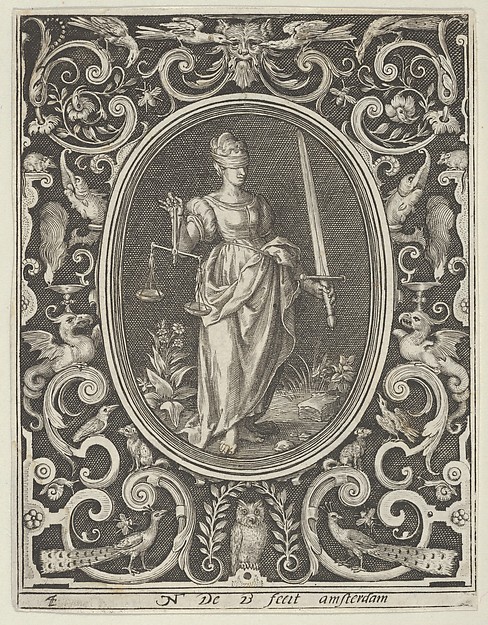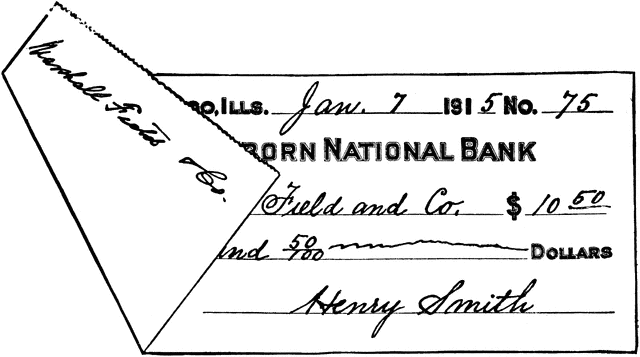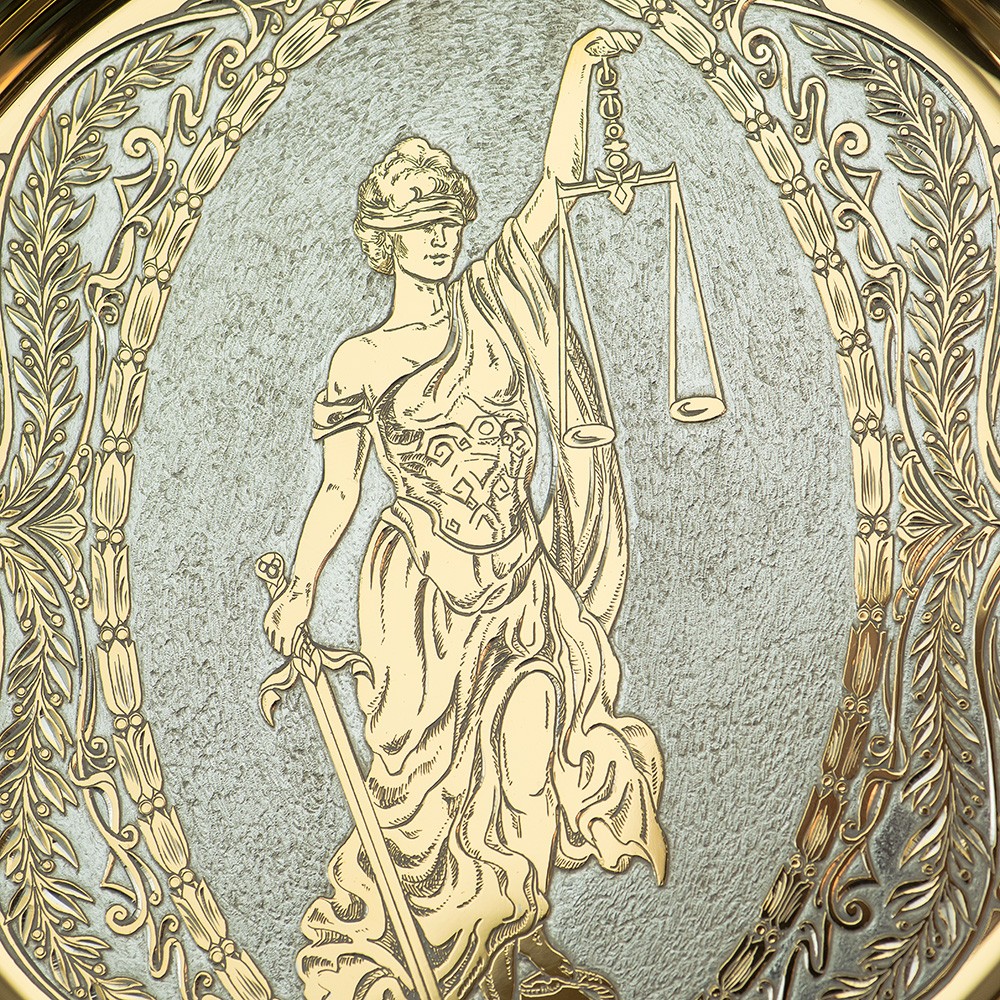Negotiation and Discharge
by
Charles Lamson
Negotiation involves the transfer of a negotiable instrument in such a way that the transferee (a person who receives property being transferred - see Figure 1) becomes the holder of the instrument. Their instruments may be negotiated by delivery. Delivery effectively vests ownership in the transferee. Thus the transferee becomes the holder.

FIGURE 1 Transferor and Transferee
FIGURE 1 Transferor and Transferee
 |
An instrument payable to "order" can be negotiated only by authorized indorsement and delivery. An indorsement is a signature on the back of an instrument (usually the holder's) along with any directions or limitations regarding use of or liability for the instrument. indorsing or transferring a negotiable instrument create certain liabilities, depending upon the nature of the endorsement or transfer.
Although an indorsement is not required for negotiation of bearer paper (a negotiable instrument such as a bond which is payable to whoever has possession (the bearer)), a transferee may require it because this adds the liability of the new indorser to the paper and thus makes it a better credit risk. It also preserves a written chronological record of all negotiations.
Place of Indorsement
Banks require that an endorsement on a check be on the back and within 1.5 inches of the trailing edge. The trailing edge is the left side of the check when looking at it from the front (see Illustration 1). If the indorser's signature appears elsewhere and it cannot be determined in what capacity the signature was made, it will be considered an indorsement. In any event, the indorsement must be on the instrument or on a paper attached to it. An allonge is a paper securely attached to an instrument. For example, a paper stapled to an instrument is securely affixed. The Uniform Commercial Code (UCC) states that such a paper is part of the instrument. If a party does not wish to be liable as an indorser, the instrument can be assigned by a written assignment on a separate piece of paper.
ILLUSTRATION 1 Indorsed Check Folded to Show the Position of the Endorsement 
Occasionally, the name of the payee or endorsee of an instrument is misspelled. If a paycheck intended for, and delivered to, Janice F. Smith is made out to "Janice K. Smith" through clerical error, "Janice F. Smith" may ask her employer for a new check properly made out to her or she may keep the check and indorse in any of the following ways:

If she intends to receive value for the check, the person to whom it is negotiated may require her to sign both names.
However, if Janice F. Smith obtains a check made payable to, and intended for, Janice K. Smith, it would be illegal for Janice F. to endorse it and receive payment for it. Only when the check is actually intended for Janice F. Smith may she make a corrective endorsement.
It is not always necessary to correct an irregularity in the name of a party to an instrument. An irregularity does not destroy negotiability. Only if it is shown that different people were actually identified by the different names, as opposed to the different names standing for one person, must the irregularity be considered. It has been held that a note was correctly negotiated when indorsed "Greenlaw & Sons by George M. Greenlaw," although it was payable to "Greenlaw & Sons Roofing & Siding Company" nothing indicates that the two enterprises were not the same firm.
Multiple Payees
Frequently, negotiable instruments are made payable to more than one person. Whether the instrument must be endorsed by more than one of them depends on the exact language use and naming them on the instrument.
If the parties are named using the word and between their names, then it is payable jointly and all of them must endorse the instrument in order to negotiate it. For example, if the instrument reads, "Pay to the order of Mary and John Doe," then both Mary and John must Indorse the instrument. Neither can negotiate the instrument alone.
If the word or is used between the names of the parties, then the instrument is payable in the alternative and only one needs to indorse the instrument in order to negotiate it. When an instrument reads, "Pay to the order of Hank or Nancy Florio," either Hank or Nancy can endorse and negotiate the instrument.

Normally, if the instrument is not clear as to whether it is payable jointly or alternatively, it will be construed to be payable in the alternative.
Kinds of Indorsements
Four types of endorsements include:
As the name indicates, a blank indorsement is one of having no words other than the name of the indorser (see Illustration 2). If the endorsement is bearer paper (a negotiable instrument which is payable to whoever has possession (the bearer)), it remains bearer paper when a blank endorsement is made. Thus, the new holder may pass good title to another holder without indorsing the instrument. The one primarily liable on the instrument is bound to pay the person who presents it for payment on the date due, even if the person is a thief or other unauthorized party.
If the instrument is order paper (a negotiable instrument that is payable to a specified person or its assignee), a blank endorsement converts it to bearer paper; if thereafter indorsed to someone's order, it becomes order paper again. Converting the instrument to order paper can minimize risks involved in handling instruments originally payable to bearer or indorsed in blank.
Special Indorsements
A special endorsement designates the particular person to whom payment should be made (see Illustration 2). After making such an endorsement, the paper is order paper, whether or not it was originally so payable or was originally payable to bearer. The holder must endorse it before it can be further negotiated. Of course, the holder may endorse the instrument in blank, which makes it bearer paper. Each holder has the power to decide to make either a blank or a special endorsement.
An indorsee by a blank indorsement may convert it to a special endorsement by writing the words "pay to the order of [indorsee]" above the endorser's signature. Such an instrument cannot now be negotiated except by indorsement and delivery. This in no way alters the contract between the indorser and the indorsee.
Qualified Indorsements
A qualified indorsement has the effect of qualifying, thus limiting, the liability of the indorser. This type of indorsement is usually used when the payee of an instrument is merely collecting the funds for another. For example, if an agent receives checks in payment of the principal's claims but the checks are made payable to the agent personally, the agent can and should elect to use a qualified indorsement to protect from liability. There is no reason for the agent to risk personal liability when the checks are the principal's. The agent does this merely by adding to either a blank or special type of indorsement the words "without recourse" immediately before the signature (see Illustration 3). This releases the agent from liability for payment if the instrument remains unpaid because of insolvency or mere refusal to pay.
ILLUSTRATION 3

A qualified indorser still warrants that the signatures on the instrument are genuine, that the endorser has good title to the instrument, that the instrument has not been altered, that no defenses are good against the indorser, and that the indorser has no knowledge of insolvency proceedings with respect to the maker, acceptor, or drawer. An endorser may avoid these warranties as well by indorsing the instrument without recourse or warranties.
Restrictive Indorsement
A restrictive indorsement is an indorsement that attempts to prevent the use of the instrument for anything except the stated use (see Illustration 4). The endorsement May state that the end or sea holds the paper for a special purpose or as an agent or trustee for another or it may impose a condition that must occur before payment. Such an endorsement does not prohibit further negotiation of the instrument.
ILLUSTRATION 4
Conditional endorsements are ineffective with respect to anyone other than the endorser and indorsee. As against a holder in due course, it is immaterial whether the indorsee has in fact recognized the restrictions. A bank receiving a check for deposit with a restrictive endorsement, such as "for deposit" or "for collection," must honor the restriction.
Liability of Indorser
By endorsing a negotiable instrument, a person can become secondarily liable for payment of the face amount and responsible for certain warranties.

Liabilities for Payment of Instrument
By making an indorsement, and indorser, with the exception of a qualified indorsement, agrees to pay any subsequent holder the face amount of the instrument if the holder presents the instrument to the primary party when due and the primary party refuses to pay. The holder must then give the endorser in question notice of such default. This notice may be given orally or it may be given by any other means, but it must be given before midnight of the third full business day after the day on which the default occurs.
Warranties of the Indorser
The warranties of all transferors differ from liability for the face of the paper in that they are not subject to the requirements of presentment and notice. The distinction is also important for purposes of limiting liability; an endorsement "without recourse" destroys only the liability of the indorser for the face of the instrument. It does not affect warranties. Thus the warranty liability of a qualified indorser is the same as that of an unqualified endorsement. An endorsement "without warranties" or a combined "without recourse or warranties" is required to exclude warranty liability.
Obligation of Negotiator of Bearer Paper
Bear paper need not be indorsed when negotiated. Mere delivery passes title. One who negotiates a bearer instrument by delivery alone does not guarantee payment, but is liable to the intermediate transferee as a warrantor of the genuineness of the instrument, of title to it, of the capacity of prior parties, and of its validity. These warranties are the same as those made by an unqualified indorser, except that the warranties of the unqualified indorser extend to all subsequent holders, not just the immediate purchaser. But since negotiable instruments are not legal tender, no one is under any obligation to accept bearer paper without any indorsement. By requiring an endorsement even though it is not necessary to pass title, the holder is gaining protection by requiring the one who wishes to negotiate it to assume all the obligations of an indorser.
Discharge of the Obligation
Negotiable instruments may be discharged by payment, by cancellation, or by renunciation. Payment at or after the date of the maturity of the instrument by the party primarily liable constitutes proper payment. Cancellation consists of any act that indicates the intention to destroy the validity of the instrument. A cancellation made unintentionally, without authorization, or by mistake is not effective. A holder of several negotiable instruments might intend to cancel one upon its payment and inadvertently cancel an unpaid one. This does not discharge the unpaid instrument. Renunciation is a unilateral act of a holder of an instrument, usually without consideration, whereby the holder gives up rights on the instrument or against one or more parties to the instrument.

The obligations of the parties may be discharged in other ways, just as in the case of the simple contract. For example, parties will no longer be held liable on instruments if their deaths have been discharged in bankruptcy or if there has been the necessary lapse of time provided by a statute of limitations.
A negotiable instrument may be lost or accidentally destroyed. This does not discharge the obligation. A party obligated to pay an instrument has a right to demand its return if possible. If this cannot be done, then the payor has a right to demand security from the holder adequate to protect the payor from having to pay the instrument a second time. The holder usually posts an indemnity bond. This is an agreement by a bonding company to assume the risk of the payor's having to pay a second time.
*SOURCE: LAW FOR BUSINESS, 15TH ED., 2005, JANET E. ASHCROFT, J.D., PGS. 272-278*
end
|


No comments:
Post a Comment